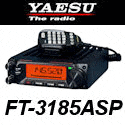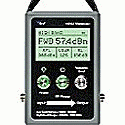AMATEUR RADIO SPECTRUM PROTECTION ACT OF 2005
Discussion in 'Amateur Radio News' started by AA7BQ, Jun 23, 2005.
- Thread Status:
- Not open for further replies.
Page 6 of 11
Page 6 of 11
- Thread Status:
- Not open for further replies.












